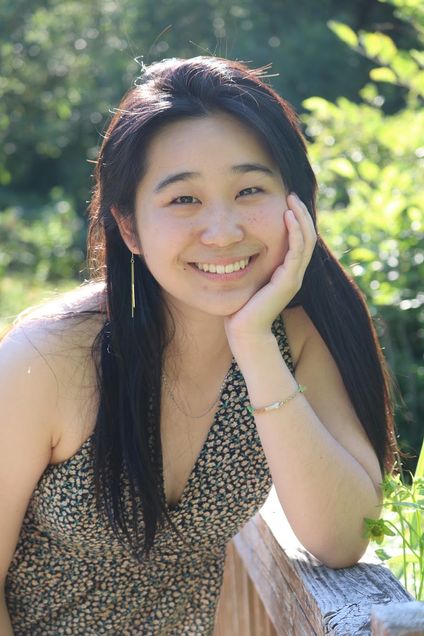Voices of BTM XXIII: Laurie Lee
 Tell us a little about your play.
Tell us a little about your play.
Okay is all about both the ability and inability to connect. It is difficult for the four characters of the play to have a genuine interaction amidst a global pandemic because their form of communication is restricted to a laptop screen. It is also difficult because it is further complicated—two characters enter a past conflict while the other two characters try to find support and love from one another. In other words, Okay calls attention to how love languages are influenced by the way we are raised in different cultural settings, and how these differences can impede effective communication between individuals.
What made you want to tell this story?
Like others, I spent a lot of time alone during the pandemic. I changed as a person, and fully came to the realization that time is so valuable—we don’t ever see it fly past us unless it’s 10 years later and we’re like, “wow! Am I that old?” I think of 2020 as a year of timelessness, but I also see that so much change happened—lots of life-transforming thoughts born from little action. I also think of grief, loss, and, most importantly, hope. Surprisingly, these thoughts that occurred within a year have changed me more than action has in all my years of life. In Okay, I wanted to express that things change. The characters are uncomfortable because they’re either holding a grudge from the past (and feel the need to address it in public) or have to witness others passive-aggressively fighting. And even more discomforting is the fact that they’re not as used to conversing with others on a screen. However, hope can coexist with conflict and change. The future isn’t erased just because the past felt unbearable. The standstill in the present, both during the pandemic and during the play, was/is heart-wrenching, anxiety-inducing, and tormenting. But in the end of the play (and in life), we’re reassured by the fact that everything will turn out okay.
What interests you in the ten-minute format?
For me, after watching a two-to-three-hour-long play or musical, leaving the theater always feels like my mind and my body are in two different places. My mind in the world of the play, and my body grounded in reality. The dissonance endures until I wake up the next morning. I think with only ten minutes of people’s time, it’s more difficult to create that dissonance after the play ends. It’s like a challenge—the playwright must do their best to draw the audience into the world of the play right off the bat.
What are the particular challenges to writing for (or adapting to) Zoom? Are there benefits to working in this medium? Were there any surprises along the way?
It wasn’t particularly a challenge for me to write for Zoom, as the actual plot of Okay involved four characters going onto a Zoom call with the onset of the pandemic. The awkwardness, the silence, the overlapping voices, and the blank staring were all authentic qualities of a typical Zoom call. And I believe, hopefully, it benefits the audience’s understanding of the play, as the Zoom format hints at the difficulties of limited communication during the actual pandemic.
What’s next for you as a playwright (or producer, actor, etc.)?
I’m not too sure of what lies ahead for me career-wise, but I am certain that theater is going to remain a crucial part of my nature and of my life, whether by performing as an actor, composing music, or writing plays. And, of course, I’m very very very certain that I’ll remain a faithful audience member to the theater community.
Don’t miss Okay on April 1. Boston Theater Marathon XXIII: Special Zoom Edition continues at 12 noon ET, Monday-Saturday, through May 28! More